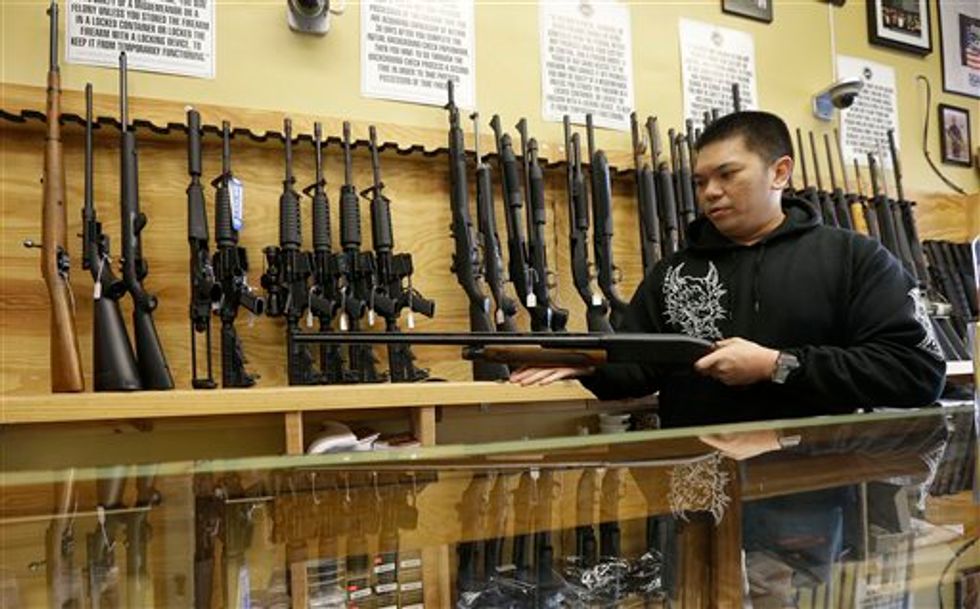
General manager Steve Alcairo holds a Winchester 1200 shotgun while being interviewed at High Bridge Arms Inc. in San Francisco, Wednesday, Dec. 19, 2012. (AP/Jeff Chiu)

Next week, President Barack Obama will place more regulations on certain gun sellers and provide more power to the Bureau of Alcohol, Tobacco, Firearms and Explosives, Politico reported.
Failing to pass legislation through Congress on background checks, Obama has had to rely on smaller measures through executive action. Citing gun industry insiders, Politco revealed that the administration will expand the number of "small-scale gun sellers" who have to be registered through the ATF, which would require these sellers to conduct background checks.
 Saul Loeb-Pool/Getty Images
Saul Loeb-Pool/Getty Images
Though this action falls short of the sweeping legislation that would close the so-called gun show loophole, it would increase the number of transactions subject to background checks.
The move will alter the definition of what it means to be “engaged in the business” of selling firearms. The current standard requires an ATF dealer's license for only those people who sell guns with the “principal objective of livelihood and profit.” Those dealers must conduct background checks for all sales, regardless where the sales take place — online, in store or at a gun show.
Further, there will be more strict federal rules on reporting lost or stolen guns.
“The President’s actions are lawless. He continuously circumvents the Congress to advance a political agenda that seeks to demonize firearms. But it’s an agenda that will do nothing to make people safer," Gun Owners of America spokesman Erich Pratt told TheBlaze.
“Gun homicides in this country have dropped precipitously over the past two decades, even while millions upon millions of new guns have flooded the market," Pratt said. "Given that record, the President should be encouraging gun ownership, rather than trying to restrict the Second Amendment rights of law-abiding Americans.”
The White House did not respond to inquiries from TheBlaze Thursday.
The pending executive actions have been planned for moths but come just weeks after former New York Mayor Michael Bloomberg, a gun control activist, visited Obama at the White House.
From Politico:
A top gun industry executive defended the current definition, saying it requires dealers to make most of their living from gun sales before requiring a license. Based on conversations with ATF officials this month, the executive described the upcoming change as "overreach": “If you are not doing it for the principal purpose of earning a livelihood AND earn a profit, you are not engaged in the business as defined by Congress,” he said in an email.Another victory for advocates is likely to be a requirement for all licensed dealers and manufacturers to report to federal authorities any guns that are stolen in transit to a buyer as missing from their inventory. Currently, advocates say, thieves often target packages addressed to gun retailers in the hopes of stealing unregistered guns that are harder to trace. And while buyer and seller might sort out refunds or replacements on their own, they’re not required to report the missing guns to the National Crime Information Center.
ATF first proposed the new regulation in August 2014, which industry opposed, saying a voluntary reporting program was working just fine. But the year-and-a-half lag between the rule’s proposal and finalization is another factor urging Obama to act forcefully as he enters the last year in his term.
It is not clear whether the measure will take the form of a new regulation (which would take months longer to finish because of requirements for public comment) or clarification of an existing rule, which would take less time but might not carry as much weight with the courts — or a future administration.